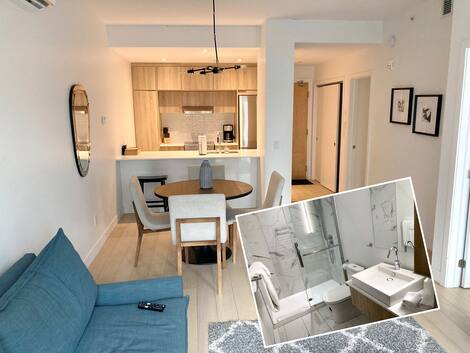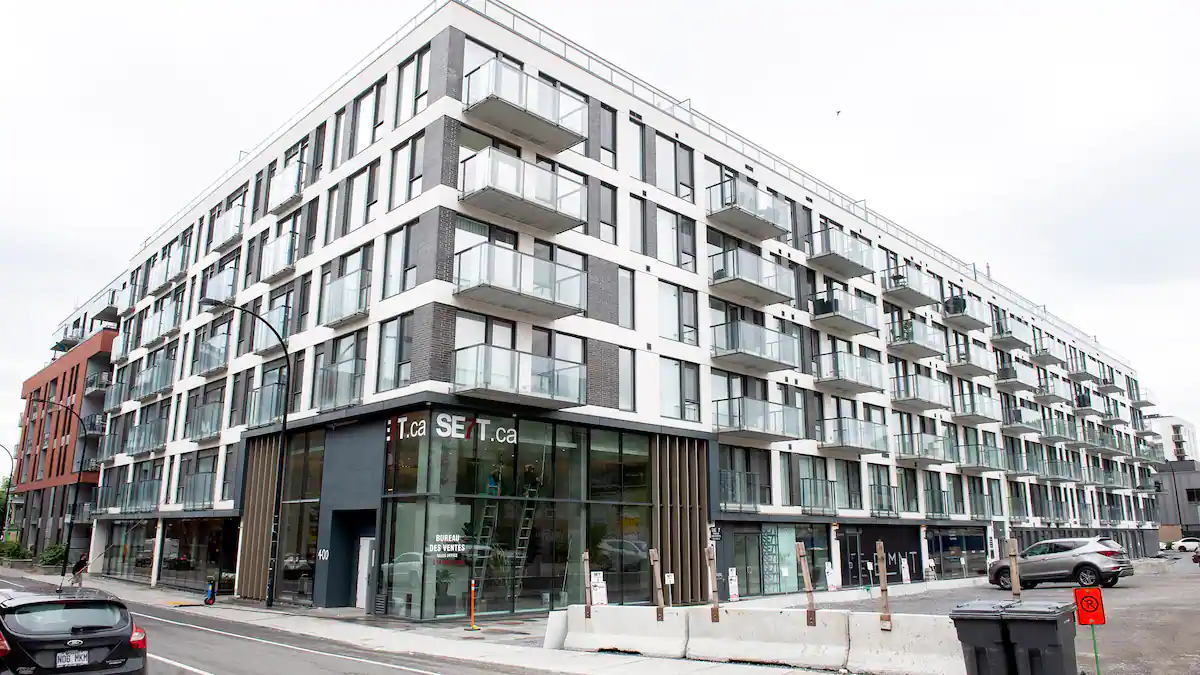A building in Griffintown that was supposed to house residences now houses a sprawling apartment hotel that costs from $150 to $2,000 per night.
• Read also: In the midst of a housing crisis, millions of dollars belong to Airbnb
Yesterday, our FBI reported that in the midst of the housing crisis, Quebec will lend $30 million to the multinational Sonder, which specializes in short-term rentals, such as Airbnb.
The company, whose main office is in the United States, manages the rental of 389 apartments in Montreal.
However, we found that 47 of these apartments are located in a building, Richmond, which should have housed traditional housing.
In 2011 developer Groupe Dayan requested a zoning change to allow it to convert former industrial buildings in Griffintown into a 300-unit housing development.

Photo by Charles Mathieu
Example 3 1/2 of this building which was asking for over $200 a night when Le Journal recently rented it.
This complex was to contribute to the “creation of a new living environment”, can we read in the documents submitted to the elected officials of the Sud-Ouest region of Montreal.
When applying for the construction permit for the first phase of his project, the developer instead requested the construction of 84 hotel housing units.
Of that number, Sonder currently manages 47 apartments and seven more are rented on Airbnb by Dayan Group.
“It’s a business decision,” said the company’s president, George Dean, who was unwilling to comment further.
And so Sonder was able to take advantage of a zoning change to settle in Richmond, before the Sud-Ouest area imposed significant restrictions on the ability to make Airbnb rentals there.
“Certainly years later, with a housing crunch, it’s getting frustrating. There, we’re currently making sure there aren’t any such cases. We really organized the organization,” says the mayor of the Southwest and responsible for housing within the Plant Department, Benoit Doris. .
Since 2019, short-term rentals have been banned in Sud-Ouest except for a short section of rue Notre-Dame.
“The use of hotel apartments, in a residential area, remains authorized in 2018. [Sonder] They are now a “vested rights,” says the town’s communications officer, Anyck Paradis.
Sonder also defended himself “at the time the permit was issued, a tourist residence was permitted in this area.”
In its 300-apartment project, Dayan Group has also committed to building 15% social housing and 15% affordable housing. Forty-seven of these units will begin this fall.
Hotels without reception
Sonder can operate “hotels” without front desk staff, even if current municipal regulations no longer allow this.
According to permits obtained from Tourisme Québec, Sonder currently operates two “tourist homes”, including Richmond, and four “hotels”.
Upon visiting, we found that three of the four Sonder hotels did not have a front desk employee on site.
These are the projects of Gare St-Denis, opposite CHUM, Victoria, in Old Montreal, and Lofts Guérin, in Le Plateau-Mont-Royal.
At the last location, by the time Sonder opened his establishment, the town had already tried to stand up to the uninhabited hotels.
However, the regulations were not specific enough to prevent Sonder from providing a remote-only reception service.
“A reception had already been set up at the establishment, and since the concept of the service was not really defined, it was difficult to order anything at this level,” explains the Director of Communications at Plateau Mont-Royal, Michel Tanguy.
So this town had to organize again to counter projects like those of Sonder.
This is also the case for the neighborhoods of Ville-Marie and Sud-Ouest, which now require hotels to have a staff member on duty 24 hours a day.
Sonder also disputed this regulation.
“There has to be a reception, with someone in place. Otherwise, it’s not conforming,” confirms the person in charge of housing within the Plant Department, Benoit Dorries.
However, Sonder could operate three of its hotels under the old regulations, under the acquired rights, the company defended itself.
“For this reason, we cannot talk about non-compliance with our regulations, nor do we require an employee to be available 24 hours a day,” identifies Michel Tangway.

“Subtly charming problem solver. Extreme tv enthusiast. Web scholar. Evil beer expert. Music nerd. Food junkie.”

